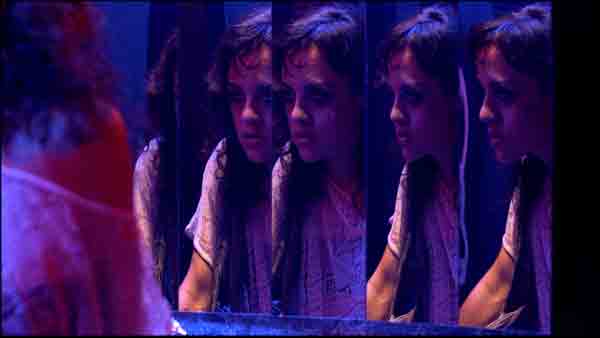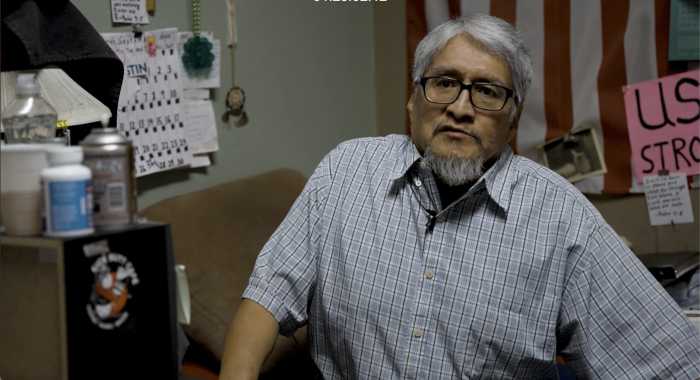Sivan Levy in Jonathan Gurfinkel’s “S#x Acts.’ | TRIBECA FILM
If Miley Cyrus’ performance at the VMAs and subsequent nude appearance in her “Wrecking Ball” video showed anything, it’s that our culture has no consensus on what constitutes healthy sexuality for teenage girls and young women. While some accused her of objectifying her African-American dancers, her white privilege didn’t prevent editorialists from suggesting that she was encouraging rape, although a twerking Nicki Minaj or Beyoncé probably would’ve received even more criticism.
While it came out months before Mileygate, Harmony Korine’s “Spring Breakers” is the movie of this moment, capturing a culture in which women are encouraged both to objectify themselves and pursue some post-feminist sense of “girl power” agency. Israeli director Jonathan Gurfinkel’s “S#x Acts” returns to the territory of Korine’s first script, for Larry Clark’s “Kids,” and it too captures the queasiness of present-day attitudes about women and sex: whatever else one can say about the film, it’s clearly not a picture of healthy female sexuality.
The film’s original title was “Six Acts,” as it’s structured around six acts of sex that its protagonist, 16-year-old Gili (Sivan Levy), either participates in or rejects. As “S#x Acts” begins, Gili is taking photos of herself. She sends them to her high school classmate Tomer (Roy Nik), who, in n turn, shows them to his friend Omri (Eviatar Mor). Meeting up with them, she gives Tomer a handjob outdoors. She tries to develop a relationship with Omri, fooling herself into thinking she’s his girlfriend. The chubby Shabat (Niv Zilberberg) seems the most likable of this unpleasant bunch, but he eventually betrays Gili as well.
Can self-objectification and feminism really work together?
In some respects, “S#x Acts” is the latest in a long line of films wagging its finger at the debauchery of contemporary teenagers. You can probably guess the details. Although they’re underage, its characters drink heavily and smoke pot frequently. Twelve-year-olds watch homemade porn on cell phones. Shabat refuses to wear a condom during sex with Gili, but then insists that Gili take the morning-after pill; he even drives to the pharmacy and buys it for her. Parents are missing — Gili drinks beer while her father snoozes in front of the TV — except in the final “act.”
Unlike “Kids,” which punished its sexually active characters by giving them HIV, no one in “S#x Acts” ever mentions STDs. The film doesn’t exactly escape from the purgatory of prudishness — if it were less explicit, it could be shown in abstinence-only sex-ed classes to convince teens not to have sex — but it avoids the simultaneous demonization and eroticization of teen sex that renders Clark’s films exercises in hypocrisy.
Thanks to Levy’s performance, Gili comes across as a very believable person, rather than a simple victim. The film itself is a convincing portrait of sex as a means of self-destruction, far more compelling than Steve McQueen’s “Shame.” It gets at some universal issues, akin to the masochistic fantasies of Susanna Moore’s novel “In the Cut.” (Jane Campion’s film adaptation was far more optimistic.) Teenage girls are hardly the only people suffering from low self-esteem or who feel more comfortable using sex to communicate rather than words.
Gili’s deludes herself that Omri cares about her as anything other than a sex object. The signs are pretty glaring — he neglects to put her name on the guest list at a nightclub party he’s throwing, humiliating her in front of a group of friends she brought with the promise of free passes. He eventually lets her in only because he wants her to have sex with one of his friends. All the while, Gili tells other girls that she’s in control, even that she’s the one using Omri. It’s never clear how much she believes what she says.
In 1995, critic Jonathan Rosenbaum mocked the New York Times’ Janet Maslin for calling “Kids” “a wake-up call to the world,” noting the narrowness of her conception of the world. “S#x Acts” might be a wake-up call to the upper-middle-class suburbs of the world, as almost every review has noted that the film could just as well be taking place in Beverly Hills or Sydney. There’s nothing specifically Israeli about the action — no references to religion or politics. Jamaican dancehall reggae makes up much of the soundtrack.
The film suggests that all over the world, teenage boys are predators and teenage girls are prey. Feminism is sorely needed in its Tel Aviv, but one suspects it was a passing fad briefly espoused by the kids’ parents. Judging from his work here, Gurfinkel would be a great choice to make a film about the Steubenville rape case.
S#X ACTS | Directed by Jonathan Gurfinkel | Tribeca Film | In Hebrew with English subtitles | Opens Dec. 6 | Cinema Village, 22 E. 12th St. | cinemavillage.com






































